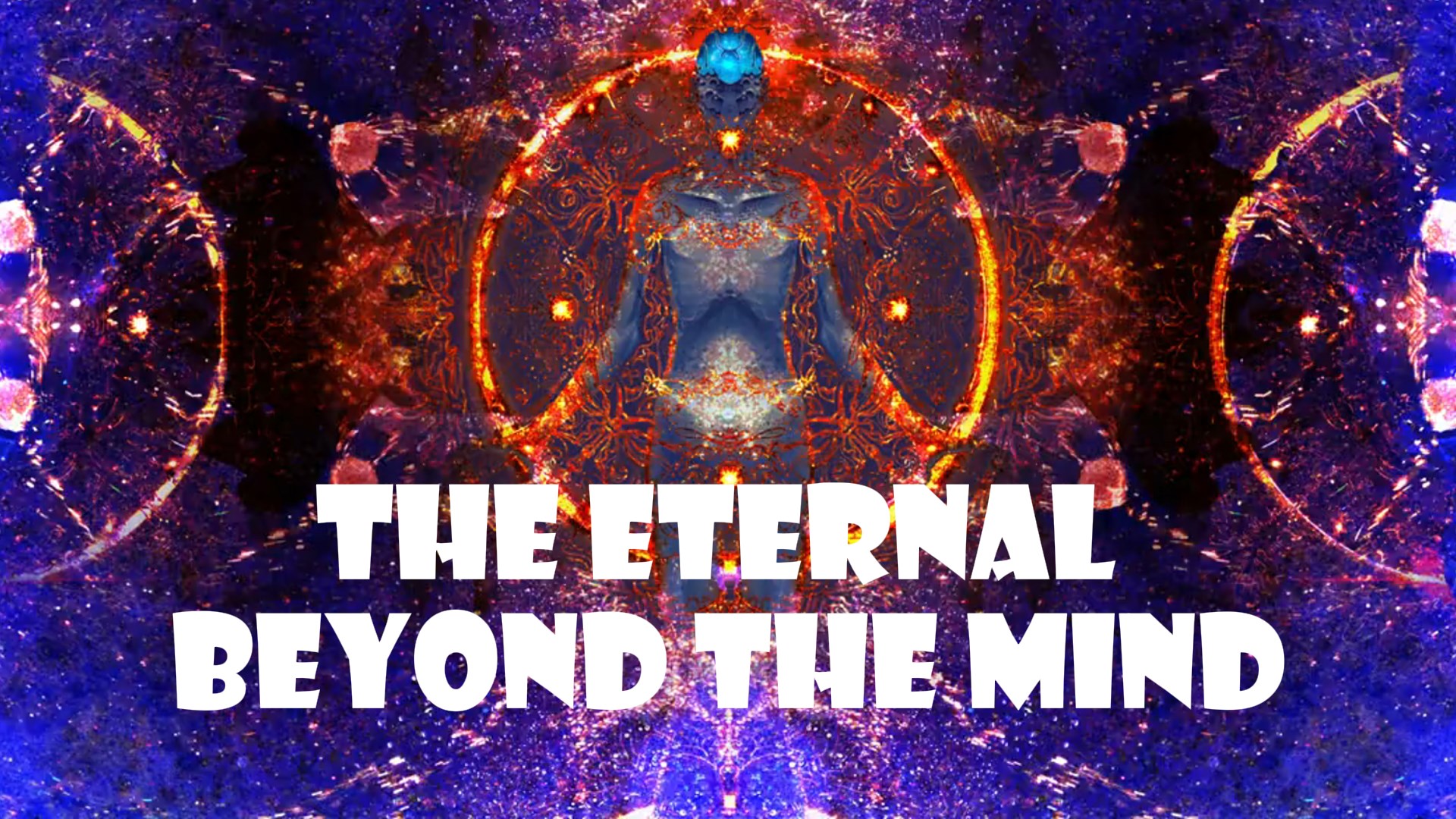The Upanishad first affirms the existence of this profounder, vaster, more puissant consciousness behind our mental being. That, it affirms, is Brahman. Mind, Life, Sense, Speech are not the utter Brahman; they are only inferior modes and external instruments. Brahman-consciousness is our real self and our true existence. Mind and body are not our real self; they are mutable formations or images which we go on constructing in the drive of Time as a result of the mass of our past energies. For although those energies seem to us to lie dead in the past because their history is behind us, yet are they still existent in their mass and always active in the present and the future. Neither is the ego-function our real self. Ego is only a faculty put forward by the discriminative mind to centralise round itself the experiences of the sense-mind and to serve as a sort of lynch-pin in the wheel which keeps together the movement. It is no more than an instrument, although it is true that so long as we are limited by our normal mentality, we are compelled by the nature of that mentality and the purpose of the instrument to mistake our ego-function for our very self. Neither is it the memory that constitutes our real self. Memory is another instrument, a selective instrument for the practical management of our conscious activities.
The ego-function uses it as a rest and support so as to preserve the sense of continuity without which our mental and vital activities could not be organised for a spacious enjoyment by the individual. But even our mental self comprises and is influenced in its being by a host of things which are not present to our memory, are subconscious and hardly grasped at all by our surface existence. Memory is essential to the continuity of the ego-sense, but it is not the constituent of the ego-sense, still less of the being. Neither is moral personality our real self. It is only a changing formation, a pliable mould framed and used by our subjective life in order to give some appearance of fixity to the constantly mutable becoming which our mental limitations successfully tempt us to call ourselves. Neither is the totality of that mutable conscious becoming, although enriched by all that subconsciously underlies it, our real self. What we become is a fluent mass of life, a stream of experience pouring through time, a flux of Nature upon the crest of which our mentality rides. What we are is the eternal essence of that life, the immutable consciousness that bears the experience, the immortal substance of Nature and mentality. For behind all and dominating all that we become and experience, there is something that originates, uses, determines, enjoys, yet is not changed by its origination, not affected by its instruments, not determined by its determinations, not worked upon by its enjoyings. What that is, we cannot know unless we go behind the veil of our mental being which knows only what is affected, what is determined, what is worked upon, what is changed.
The mind can only be aware of that as something which we indefinably are, not as something which it definably knows. For the moment our mentality tries to fix this something, it loses itself in the flux and the movement, grasps at parts, functions, fictions, appearances which it uses as planks of safety in the welter or tries to cut out a form from the infinite and say, “This is I.” In the words of the Veda, “when the mind approaches That and studies it, That vanishes.” But behind the Mind is this other or Brahman-conscious-ness, Mind of our mind, Sense of our senses, Speech of our speech, Life of our life. Arriving at that, we arrive at Self; we can draw back from mind the image into Brahman the Reality. But what differentiates that real from this apparent self? Or — since we can say no more than we have said already in the way of definition, since we can only indicate that “That” is not what “this” is, but is the mentally inexpressible absolute of all that is here, — what is the relation of this phenomenon to that reality? For it is the question of the relation that the Upanishad makes its starting-point; its opening question assumes that there is a relation and that the reality originates and governs the phenomenon. Obviously, Brahman is not a thing subject to our mind, senses, speech or life-force; it is no object seen, heard, expressed, sensed, formed by thought, nor any state of body or mind that we become in the changing movement of the life. But the thought of the Upanishad attempts to awaken deeper echoes from our gulfs than this obvious denial of the mental and sensuous objectivity of the Brahman. It affirms that not only is it not an object of mind or a formation of life, but it is not even dependent on our mind, life and senses for the exercise of its lordship and activity.
It is that which does not think by the mind, does not live by the life, does not sense by the senses, does not find expression in the speech, but rather makes these things themselves the object of its superior, all-comprehending, all-knowing consciousness. Brahman thinks out the mind by that which is beyond mind; it sees the sight and hears the hearing by that absolute vision and audition which are not phenomenal and instrumental but direct and inherent; it forms our expressive speech out of its creative word; it speeds out this life we cling to from that eternal movement of its energy which is not parceled out into forms but has always the freedom of its own inexhaustible infinity. Thus the Upanishad begins its reply to its own question. It first describes Brahman as Mind of the mind, Sight of the sight, Hearing of the hearing, Speech of the speech, Life of the life. It then takes up each of these expressions and throws them successively into a more expanded form so as to suggest a more definite and ample idea of their meaning, so far as that can be done by words. To the expression “Mind of the mind” corresponds the expanded phrase “That which thinks not with the mind, that by which the mind is thought” and so on with each of the original descriptive expressions to the closing definition of the Life behind this life as “That which breathes not with the life-breath, that by which the life-power is brought forward into its movement”. And each of these exegetic lines is emphasised by the reiterated admonition, “That Brahman seek to know and not this which men follow after here.” Neither Mind, Life, Sense and Speech nor their objects and expressions are the Reality which we have to know and pursue. True knowledge is of That which forms these instruments for us but is itself independent of their utilities. True possession and enjoyment is of that which, while it creates these objects of our pursuit, itself makes nothing the object of its pursuit and passion, but is eternally satisfied with all things in the joy of its immortal being.

